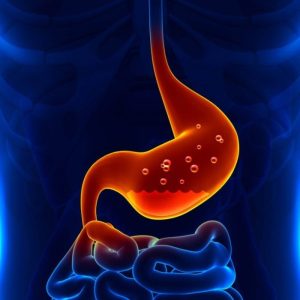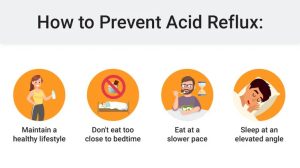Embark on a journey into the world of natural remedies for heartburn, where we uncover effective solutions and lifestyle changes that can provide relief. Get ready for a fascinating exploration that will leave you informed and empowered.
Discover how simple adjustments and alternative therapies can make a significant difference in managing heartburn symptoms naturally.
Natural Remedies for Heartburn

Heartburn is a common condition that can be quite uncomfortable. While over-the-counter medications are available, many people prefer natural remedies to alleviate their symptoms. Here are some common natural remedies for heartburn:
1. Ginger
Ginger has been used for centuries to aid digestion and reduce inflammation. It can help soothe the stomach and alleviate heartburn symptoms. You can consume ginger in various forms, such as ginger tea or adding fresh ginger to your meals.
2. Aloe Vera Juice
Aloe vera juice is known for its anti-inflammatory properties and can help soothe the esophagus lining. Drinking a small amount of aloe vera juice may provide relief from heartburn symptoms.
3. Apple Cider Vinegar
Although acidic in nature, apple cider vinegar can actually help balance stomach acid levels, reducing heartburn. Mix one tablespoon of apple cider vinegar with a glass of water and drink it before meals to prevent heartburn.
4. Chamomile Tea
Chamomile tea has calming effects on the stomach and can help reduce acid reflux. Drinking a cup of chamomile tea before bed may help prevent heartburn symptoms during the night.
Lifestyle Changes for Heartburn Relief
Aside from natural remedies, making certain lifestyle changes can also help alleviate heartburn symptoms. These changes include:
1. Eating smaller meals
Large meals can put pressure on the stomach, leading to heartburn. Eating smaller meals throughout the day can help prevent acid reflux.
2. Avoiding trigger foods
Foods like spicy, fatty, or acidic foods can trigger heartburn symptoms. Avoiding these trigger foods can help reduce the frequency of heartburn episodes.
3. Elevating the head of the bed
Keeping your upper body elevated while sleeping can help prevent acid from flowing back into the esophagus, reducing the chances of experiencing heartburn at night.
Health Diseases Related to Heartburn
Chronic heartburn can lead to various health complications if left untreated. The continuous exposure of stomach acid to the esophagus can cause damage over time, resulting in more serious conditions.
Link Between Heartburn and GERD
- GERD, or Gastroesophageal Reflux Disease, is a chronic condition where acid reflux occurs more than twice a week.
- Untreated heartburn can progress to GERD, leading to inflammation and damage to the esophagus.
- GERD symptoms include frequent heartburn, chest pain, difficulty swallowing, and regurgitation of stomach contents.
Other Health Issues Caused by Untreated Heartburn
- Esophagitis: Inflammation of the esophagus due to prolonged exposure to stomach acid.
- Barrett’s Esophagus: A condition where the lining of the esophagus changes, increasing the risk of esophageal cancer.
- Esophageal Strictures: Narrowing of the esophagus due to scarring from repeated acid exposure, leading to difficulty swallowing.
Health Allergies and Heartburn
Food allergies can play a significant role in triggering heartburn symptoms in individuals. Understanding the connection between allergies and heartburn can help manage symptoms effectively.
Impact of Food Allergies on Heartburn
- Food allergies can lead to inflammation in the esophagus, making it more susceptible to acid reflux.
- Certain foods that trigger allergies may also be common heartburn triggers, such as spicy foods, citrus fruits, and tomatoes.
- Allergic reactions can cause the release of histamines, which may worsen heartburn symptoms.
Managing Heartburn with Food Sensitivities
- Identify and avoid foods that trigger both allergies and heartburn symptoms.
- Keep a food diary to track reactions and pinpoint specific allergens that may be exacerbating heartburn.
- Consult with a healthcare provider or allergist to determine the best course of action for managing both conditions effectively.
Health Massage Techniques for Heartburn Relief
Massage therapy can be a soothing and effective way to relieve the discomfort of heartburn. By targeting specific pressure points and promoting relaxation, massage can help alleviate symptoms and reduce stress, which is a common trigger for heartburn.
Self-Massage Techniques for Heartburn Relief
- Start by applying gentle pressure to the area just below the breastbone, using circular motions with your fingertips.
- Move your fingers in a clockwise direction, following the path of the digestive system, to help promote digestion and reduce acid reflux.
- Use long, sweeping strokes along the abdomen to encourage relaxation and relieve tension in the stomach muscles.
- Focus on deep breathing while massaging to help calm the nervous system and reduce stress levels.
- Finish by gently massaging the back and shoulders to release any tension that may be contributing to heartburn symptoms.
Health Disability and Heartburn Management
Living with a disability can present unique challenges when it comes to managing heartburn symptoms. Individuals with disabilities may face difficulties in implementing traditional heartburn management techniques due to physical limitations or other health concerns. It is crucial to explore adaptive strategies and resources that can help them effectively cope with heartburn triggers and improve their quality of life.
Adaptive Strategies for Managing Heartburn
- Modify diet: Individuals with disabilities may need to adjust their diet to avoid trigger foods that exacerbate heartburn symptoms. Working with a healthcare provider or nutritionist can help create a personalized meal plan.
- Elevate sleeping position: Using pillows or a bed wedge to elevate the upper body while sleeping can help prevent acid reflux during the night.
- Stay hydrated: Drinking plenty of water throughout the day can help dilute stomach acid and reduce the risk of heartburn flare-ups.
- Use assistive devices: For individuals with mobility issues, using assistive devices like reachers or grabbers can make it easier to access medication or food items that aid in heartburn relief.
Resources and Support for Individuals with Disabilities
- Accessible healthcare services: Seek out healthcare providers who are experienced in working with individuals with disabilities and can offer tailored treatment plans for managing heartburn.
- Support groups: Joining support groups or online communities specific to individuals with disabilities and heartburn can provide valuable insights, tips, and emotional support.
- Assistive technology: Explore the use of assistive technology devices, such as voice-activated reminders for medication or meal tracking apps, to help manage heartburn symptoms effectively.
- Advocacy organizations: Connect with advocacy organizations that focus on disability rights and healthcare access to stay informed about relevant resources and policy changes that may impact heartburn management.
Heartburn and Acid Reflux Trigger Foods
When it comes to managing heartburn and acid reflux, it’s essential to be mindful of the foods that can trigger or worsen these symptoms. Certain foods can relax the lower esophageal sphincter, increase stomach acid production, or irritate the esophagus, leading to heartburn episodes.
Common Trigger Foods
- Citrus Fruits: Oranges, lemons, grapefruits, and other citrus fruits can be acidic and aggravate heartburn symptoms.
- Spicy Foods: Hot peppers, chili, and other spicy foods can trigger acid reflux and cause discomfort.
- Tomatoes: Tomatoes and tomato-based products like sauces and ketchup are known to worsen heartburn for some individuals.
- Caffeine: Coffee, tea, and caffeinated beverages can relax the esophageal sphincter and increase stomach acid production.
- Chocolate: Chocolate contains caffeine and may also relax the esophageal sphincter, leading to heartburn.
Dietary Suggestions
To avoid triggering heartburn, consider incorporating the following dietary suggestions:
- Opt for lean proteins like chicken, fish, and tofu instead of fatty meats.
- Choose whole grains and high-fiber foods over refined carbohydrates.
- Include plenty of fruits and vegetables in your diet, except for citrus fruits and tomatoes.
- Drink plenty of water and herbal teas instead of caffeinated beverages.
- Limit your intake of alcohol and carbonated beverages.
Concluding Remarks

In conclusion, embracing natural remedies for heartburn can offer a holistic and sustainable way to address discomfort. By incorporating these strategies into your routine, you can take control of your health and well-being.
Key Questions Answered
Can certain foods actually help alleviate heartburn?
Yes, foods like bananas, ginger, and oatmeal have been known to soothe heartburn symptoms.
Are natural remedies safer than over-the-counter medications for heartburn?
Natural remedies are generally considered safer with fewer side effects, but it’s essential to consult with a healthcare provider before making any changes.
How can massage techniques contribute to heartburn relief?
Massaging specific pressure points can aid in digestion and reduce stress, which are common triggers for heartburn.
What role do lifestyle changes play in managing heartburn?
Simple adjustments like avoiding trigger foods, eating smaller meals, and maintaining a healthy weight can significantly reduce heartburn episodes.




